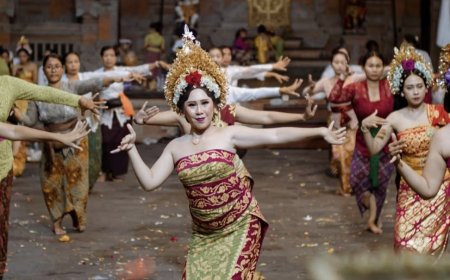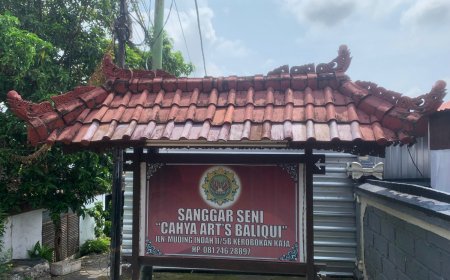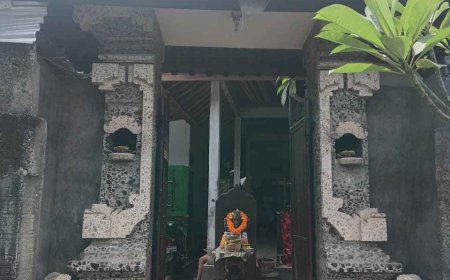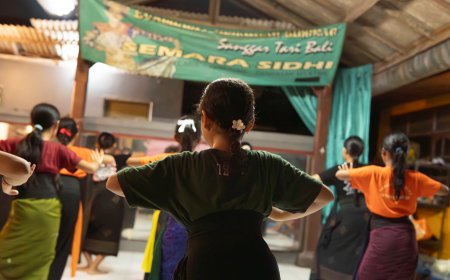Sanggar Kukuruyuk: I Made Taro’s Dedication to Reviving Folktales and Traditional Games in the Digital Era
Amid the onslaught of modernization and digitalization, the voices of ancestral wisdom are often muted, almost lost. However, on the Island of the Gods, there is a figure who tenaciously and lovingly keeps the torch of tradition burning brightly: I Made Taro. Dubbed the "Father of Balinese Storytelling", he is not just an ordinary storyteller but a maestro who has dedicated his life to repackaging satua (fable and folktale), traditional children's songs, and traditional Balinese games to remain sustainable and beloved by future generations. The story of his struggle, especially through the establishment of Sanggar Kukuruyuk, is an inspiring ode to cultural preservation.
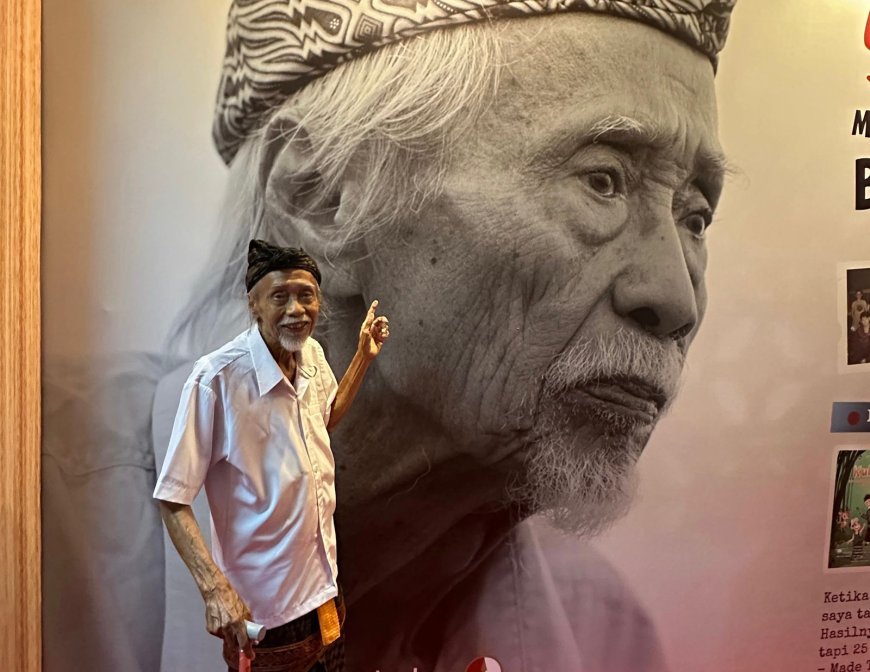
Kukuruyuk Cultural Art Studio stands as a bridge between tradition and modernity. By presenting folktales and traditional games in an interactive and engaging way, this cultural hub offers an alternative form of creative education in the digital era, where children are often more familiar with gadgets than local wisdom. In 1939, in the village of Sengkidu, Manggis District, Karangasem, I Made Taro was born, a storyteller and cultural activist who dedicated his life to preserving Bali’s oral traditions. Sanggar Kukuruyuk does not operate in a fixed performance venue; instead, it is frequently present in various educational and cultural activities. The group regularly visits elementary schools through extracurricular programs and performs at events such as the Rare Bali Festival at Bali Arts Center, traditional games workshops for PAUD/TK teachers in Denpasar, and storytelling sessions at cultural sites like Samuan Tiga Temple. Its central office is located in Penatih Dangin Puri, East Denpasar, serving as the base for administration and coordination.
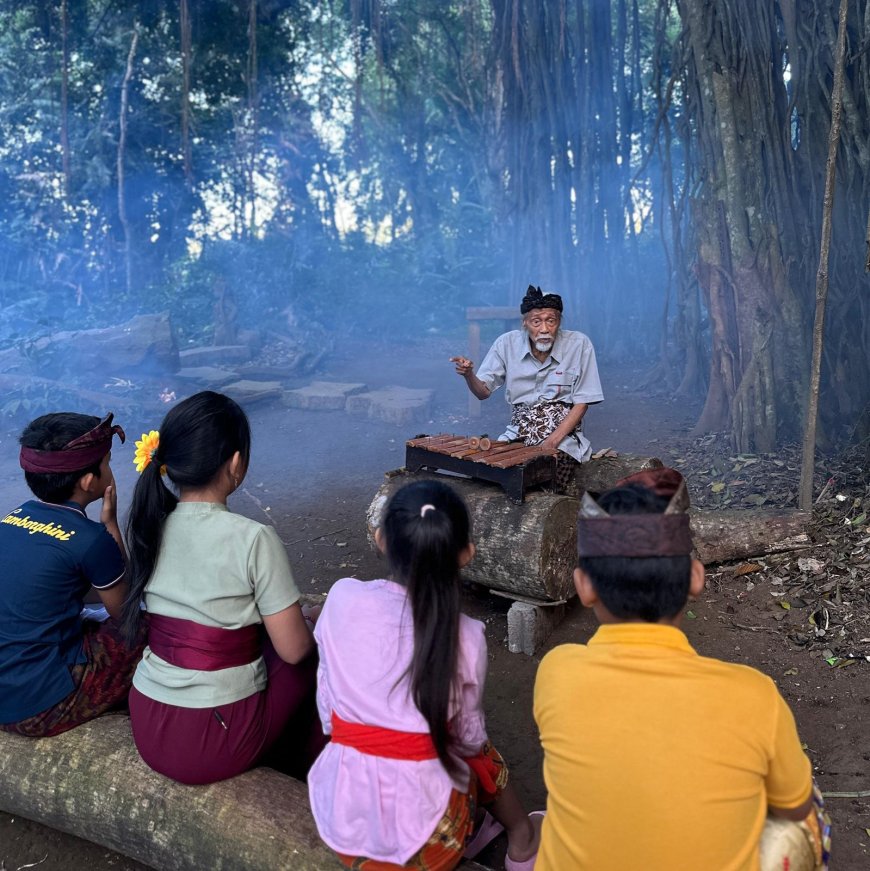
Storytelling to children (source: personal collection)
The determination to safeguard this cultural heritage ultimately materialized in physical form: Kukuruyuk Cultural Art Studio, founded on June 15, 1979. The name “Kukuruyuk” itself holds deep philosophical meaning. Like the crow of a rooster at dawn, it symbolizes a new spirit, optimism, and hope for nurturing a better generation one that remains connected to its cultural roots. The name was chosen because it evokes the rooster’s call that awakens and inspires enthusiasm in the morning. Beyond storytelling, I Made Taro also revitalized Bali’s traditional games. For him, folk games were not merely entertainment but a means of building character, sharpening intelligence, and strengthening social bonds among children. At Sanggar Kukuruyuk, games such as meong-meongan teach teamwork, tajog trains balance and precision, while other group games nurture a sense of togetherness. Through these activities, children learn life values without being confined to the classroom.
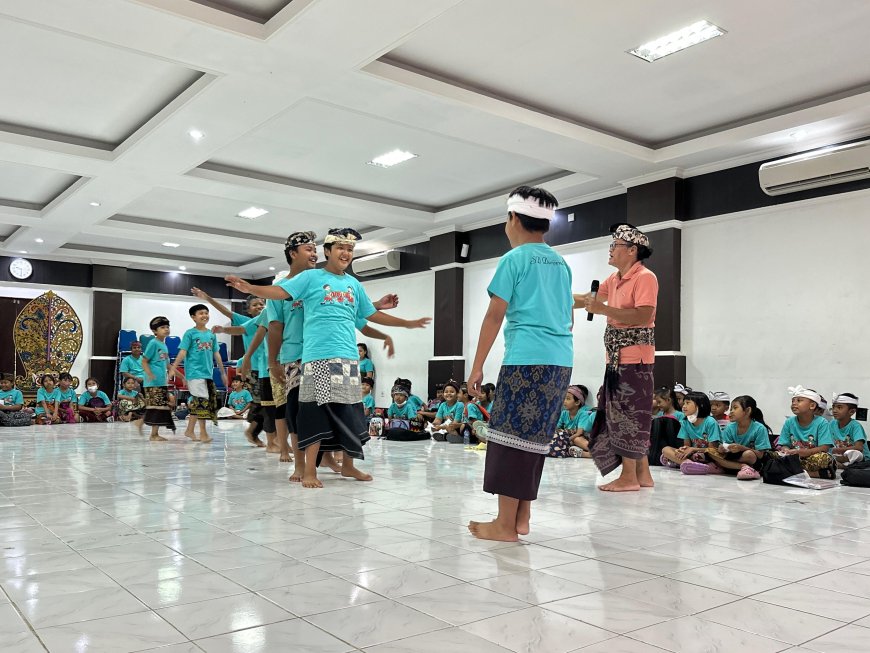
Performance of the Traditional Game Meong Meongan (source: personal collection)
One of I Made Taro’s greatest skill lies in his ability to make Balinese satua (folktalles) engaging and relevant. He not only narrated stories as they were but also infused them with moral lessons, life philosophies, and local wisdom that resonated with modern times. His folktales often conveyed messages about protecting nature, respecting others, and living harmoniously in society. He frequently adapted his storytelling style to be more interactive, making children feel directly involved in the story’s progression. Thus, satua (folktales) became more than mere entertainment it became an effective medium of character education. In addition, I Made Taro actively wrote and documented Balinese folktales. Through his books, oral traditions that once circulated only by word of mouth could now be read and studied by future generations. This was a concrete form of cultural preservation that relied not only on oral tradition but also on written media. Throughout his life, he authored more than 30 books, compiled around 200 traditional games, and collected 225 children’s songs establishing himself as a master documenter of culture.
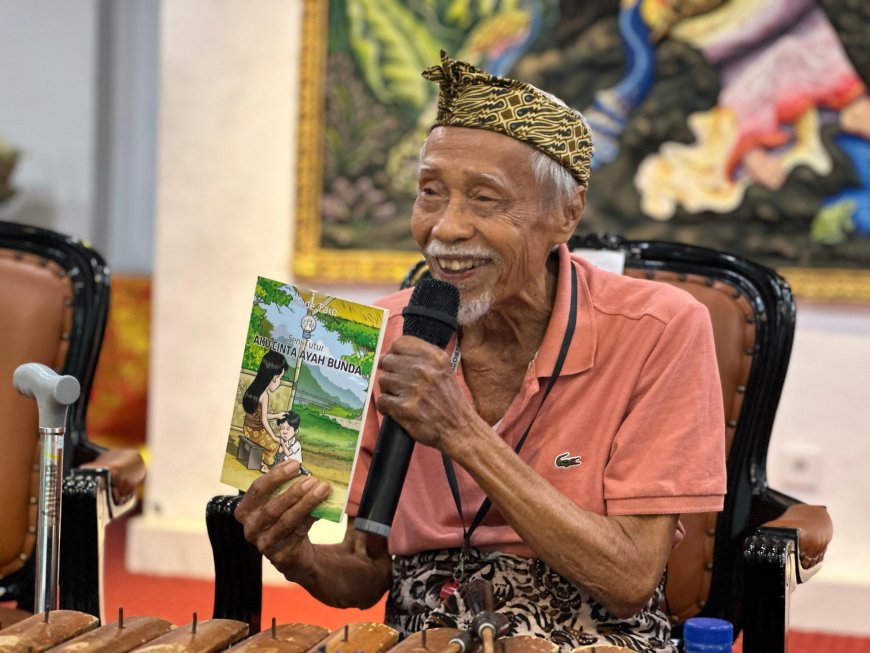
The figure of Made Taro, Maestro of Balinese Literature (source: personal collection)
I Made Taro's dedication has yielded many awards, both national and international. He has received the Cultural Satyalancana Award from the President of the Republic of Indonesia, among various other awards for his services in cultural preservation and education based on local wisdom. His achievements were nationally recognized when he was awarded the title of Maestro of Oral Tradition by the Ministry of Culture and Tourism in 2008 and received the Presidential Cultural Award in 2009. Other prestigious awards, such as the Sastra Rancage Award (2005) and the Lifetime Achievement Award from the Ubud Writers & Readers Festival (2019), further cemented his position as a pillar of cultural preservation. Besides being active in storytelling, he is also a productive writer. Some of his well-known works include Bawang dan Kesuna (1997), Randu dan Sahabatnya (2002), and Balingkang (Grasindo, 2004) as well as various collections of folktales documented in book form. Through these works, he successfully transferred the oral tradition into written form, making it possible to study across generations and regions.
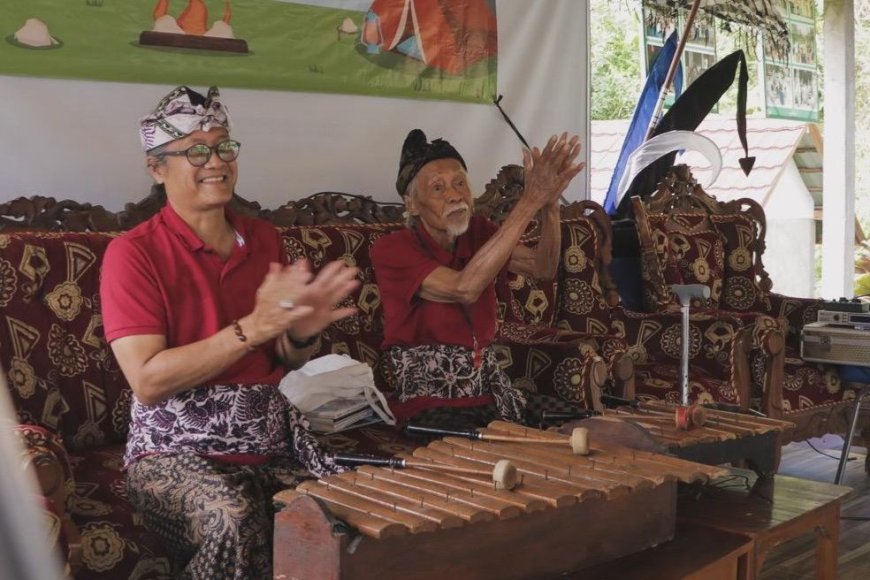
I Made Taro and his son at the Traditional Games Show (Source: personal collection)
However, more than just awards and works, his greatest legacy is the spirit he instills in the younger generation: to love their own culture. In the era of gadgets and digital games, the existence of a figure like I Made Taro becomes very important. He shows that traditional culture is not something obsolete but can be revived creatively so that it remains relevant. Thanks to his struggle, Balinese satua and traditional games are now not just memories but a real part of cultural education for children. The younger generation of Bali can grow up knowing, loving, and preserving the local wisdom inherited from their ancestors. Most amazingly, in his old age, his spirit never fades. He is still active in mentoring children and teachers, proving that the struggle to preserve culture is a lifelong work.










